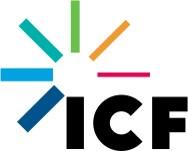Anti-Human Trafficking Training and Technical Assistance
Human trafficking is one of the world’s fastest growing criminal activities, operating on the same scale as the illegal trade of guns and drugs.
Upcoming Events
Stay tuned for upcoming events.
IACP Resources
Building Police Agency Capacity: A Toolkit for Human Trafficking Investigations The IACP is pleased to announce the release of an online resource toolkit to enhance the ability of state, local, and tribal police agencies to identify and assist human trafficking victims and to conduct trauma-informed, victim-centered investigations. This toolkit is supported by the U.S. Department of Justice, Office for Victims of Crime. Access the toolkit here! | The IACP and the National White Collar Crime Center (NW3C), with support from the Office for Victims of Crime, introduces the TraffickSTOP (Signs to Observe and Prevent) program – a human trafficking identification and prevention curriculum for high school students. The TraffickSTOP program uses a facilitator-guided approach, with school resource officers (SROs) or other police personnel delivering the curriculum in schools. The TraffickSTOP toolkit includes curriculum, meeting plans, posters, and additional resources to implement the program in any high school. A self-paced online training course teaches facilitators how to deliver the curriculum.
|
Financial Crime and Human Trafficking The IACP, in partnership with the National White Collar Crime Center (NW3C) and the Office for Victims of Crime (OVC), developed an online, self-paced training on how human trafficking intersects with financial crimes. This training will teach investigators how financial investigations can result in additional charges beyond human trafficking and assist prosecution of offenders at the local, state, and federal levels. To register for this course, visit IACPlearn.
| Human Trafficking Task Force Protocol Development Training Video Series The International Association of Chiefs of Police (IACP), in partnership with ICF, Inc. and the Office for Victims of Crime (OVC), introduces a three-part video series to promote the development of anti-human trafficking task force protocols by local law enforcement, prosecutors, and victim service providers across the United States. This training video series explains the various steps to developing anti-human trafficking task force protocols. The series is engaging and educational and encourages local law enforcement, prosecutors, and service providers to complete the tasks needed to create necessary protocols. The topics of the series include: 1. What is a protocol and why is it important? 2. How does a task force develop a protocol? 3. From theory to practice: implementing protocols. |
Considerations for Recording Human Trafficking Victim Interviews This document provides information for multidisciplinary anti-human trafficking task forces to consider the advantages and disadvantages of recording human trafficking victim interviews. This guide discusses five interview goals including building trust and rapport, minimizing re-traumatization, gathering information and establishing the elements of the crime, determining credibility, and supporting prosecution. The document also touches on promising practices for informed consent when recording or not recording victim interviews.
| Enhanced Collaborative Model (ECM) Anti-Human Trafficking Task Force Protocol Development Checklists The International Association of Chiefs of Police (IACP) offers a toolkit of Enhanced Collaborative Model (ECM) protocol development checklists that provide a list of items human trafficking task forces should consider when developing protocols specific to their local task force. These checklists encompass best practices, a trauma-informed and victim-centered approach, and are guided by the ECM, directing the development and implementation of strong and effective protocols. |
About the Enhanced Collaborative Model This document provides a brief overview of the U.S. Department of Justice Enhanced Collaborative Model to Combat Human Trafficking program, highlights successes from participating human trafficking task forces, and summarizes IACP’s training and technical assistance resources.
| Development & Operations Roadmap for Multidisciplinary Anti-Human Trafficking Task Forces Developing a multidisciplinary anti-human trafficking task force is a process that requires significant time, attention, and intention. In recognition of the challenges involved in this process, the roadmap provides new and experienced anti-human trafficking task forces alike with guidance to assess and plan task force development from start to sustainability. |
IACPlearn – Anti-Human Trafficking Webinars and Training IACPlearn is your hub for all on-demand and live virtual learning such as training, webinars, and podcasts. Webinars and training on topics including identifying, investigating and prosecuting multiple forms of human trafficking and operating a collaborative, multidisciplinary human trafficking task force can be found on this platform.
| Online peer-to-peer sharing community exclusively for DOJ-funded ECM Human Trafficking Task Forces. Here you will be able to connect with fellow Task Force members, participate in discussion, view weekly spotlights, share and find resources, network with other members, and make suggestions for what you want to see in the community. Request an account here. |
Child Sex Trafficking Tools For Law Enforcement Child sex trafficking involves a number of complex crimes requiring law enforcement to collaborate with multiple community partners to identify and respond to child victims, while holding accountable those who are responsible for their exploitation. This includes working closely with prosecutors, schools, victim service providers, parole and probation, juvenile justice departments, child welfare agencies, and members of the community. This project aims to assist law enforcement leaders in adopting effective multidisciplinary approaches to address child sex trafficking in their communities.
| MAXIMIZING JUSTICE: Building a Prosecution Review Process This document assists multidisciplinary anti-human trafficking task forces to develop a process that details how they will work with local, state, and federal prosecutors to conduct case reviews and referrals for both state and federal prosecutions. This guidance helps stakeholders to evaluate federal and state criminal justice systems in order to make informed decisions on the most effective route to pursue prosecution based on a thorough analysis of each legal system’s statutes, policies, and procedures. |
Worksheet: Planning for Task Force Sustainability This worksheet summarizes some questions a task force might consider when planning for sustainable operations after Enhanced Collaborative Model (ECM) program funding ends. This worksheet also guides the development of tools needed for the successful implementation of a sustainability plan, including outreach materials, communication plans, fundraising plans, and systems development needs.
| Human Trafficking Law Enforcement Training Guidebook The Crime of Human Trafficking: A Law Enforcement Guide to Identification and Investigation includes information on federal law, tools for identification, investigation and response, and resources for victim assistance. Recognizing the international nature of human trafficking and the limited language resources and interpretation capabilities facing many police departments, IACP has translated the guidebook into Spanish. |
The Crime of Human Trafficking: Roll-Call Training Video This three-part roll-call training video provides law enforcement and their partners with information so that they can effectively identify and respond to human trafficking crimes. The segments include Defining the Crime, Identifying and Responding, and Investigating and Interviewing.
| The Crime of Human Trafficking: A Law Enforcement Guide Discussion Questions This discussion guide is designed to reinforce key information contained in the roll call training video and assist officers in applying this knowledge to their local community. To increase the impact of this video, please use in conjunction with the IACP guidebook, The Crime of Human Trafficking: A Law Enforcement Guide to Identification and Investigation. The page numbers following each question reference pages in the guidebook where more information can be found.
|
Training Key: Human Trafficking Update (IACP members only) Human trafficking is a global phenomenon that involves obtaining or maintaining the labor or services of another through the use of force, fraud, or coercion in violation of an individual’s human rights. In order to combat it, law enforcement must be aware of the signs that indicate that trafficking may be occurring in their communities. This training key defines multiple forms of human trafficking and details strategies for identifying and investigating human trafficking crimes. |
About IACP’s Human Trafficking Training and Technical Assistance Programs
Building Agency Capacity: A Toolkit for Human Trafficking Investigations (Project One-Pager)
New in Fall 2024! The IACP is pleased to announce the release of an online resource toolkit to enhance the ability of state, local, and tribal police agencies to identify and assist human trafficking victims and to conduct trauma-informed, victim-centered investigations. This toolkit is supported by the U.S. Department of Justice, Office for Victims of Crime. Access the toolkit here!
For more information, please contact the IACP Anti-Human Trafficking team at [email protected].
National Human Trafficking Training and Technical Assistance (TTA) Program for Enhanced Collaborative Model (ECM) Task Forces
The IACP, in collaboration with AEquitas, ICF Inc., the National District Attorneys Association (NDAA), the National White Collar Crime Center (NW3C), and the Office for Victims of Crime (OVC), aims to increase the organizational capacity of ECM anti-human trafficking task forces and professionals in policing, prosecution, victim services, and related fields to better identify victims, provide services, and successfully investigate and prosecute cases at all levels.
The IACP will leverage innovative techniques and promising practices to:
promote trauma-informed and victim-centered investigative and prosecutorial techniques;
address core task force operational topics impacting ECM task forces that span across multisector audiences;
foster peer engagement and learning opportunities across ECM task forces; and
support law enforcement to establish the trust of persons subjected to human trafficking and encourage participation with investigative efforts.
Through the National Human Trafficking TTA Program, IACP provides an array of web-based and in-classroom training for anti-human trafficking professionals. If you have any questions regarding the resources listed below, please contact the IACP Anti-Human Trafficking team at [email protected]. The IACP currently offers, or is developing, the following resources:
Open-Access Resources (grant program affiliation not required)
Webinar Series, a series of educational webinars covering a wide range of topics in combating human trafficking. You can find our existing library of webinars on our online learning portal, IACPlearn and check our Upcoming Events section above for upcoming webinars in the series.
Protocol Development Flash Sessions, a three-part video series that promotes the development of anti-human trafficking task force protocols by local law enforcement, prosecutors, and victim service providers across the United States. The series is engaging and educational and encourages local law enforcement, prosecutors, and service providers to complete the tasks needed to create necessary protocols. The topics of the series include: 1. What is a protocol and why is it important? 2. How does a task force develop a protocol? 3. From theory to practice: implementing protocols.
The Leadership Institute to Combat Human Trafficking, a two-day, in-person event that will leverage police and prosecutorial leadership roles to make organizational change by developing and refining human trafficking responses.
Beyond the Basics: Advancing Human Trafficking Investigations & Prosecutions training, a 2.5-day classroom training curriculum addressing investigation resources and methods; trauma-informed interviewing; working with victims of human trafficking; and key partnerships and strategies for successful prosecutions.
Collaboration Station, a 2-day, multidisciplinary, scenario-based training in which participants will “walk in the shoes” of professionals in professional roles other than their own to consider shared challenges and strategies to overcome them from alternate perspectives.
Effective Strategies to Investigate and Prosecute Labor Trafficking in the United States, an engaging 2.5-day in-depth training designed to prepare participants to identify, investigate, and prosecute labor trafficking crimes. This course will enable investigators and prosecutors to proactively identify victims of labor trafficking and effectively investigate and prosecute offenders, using best practices and a trauma-centered approach. No events are currently scheduled at this time.
Dedicated Resources for Office for Victims of Crime (OVC)-funded Enhanced Collaborative Model (ECM) grantees have been
Task Force Connect, an online community exclusively for DOJ-funded ECM task force members. Task Force Connect provides an opportunity for law enforcement, service providers, task force coordinators, and other anti-human trafficking professionals to connect with each other and exchange ideas and information. Membership open only for ECM task force members.
ECM Human Trafficking Task Force Peer-to-Peer Exchange Program, a field-based learning opportunity that allows ECM task forces to connect with peers who exemplify innovative and promising practices in anti-human trafficking investigations, prosecutions, and victim response.
Advanced Seminar Series, a series of small-group facilitated discussion events. These discussion sessions will encourage participants to develop new thoughts and perspectives on various issues related to the anti-human trafficking field. ECM Task Force members prioritized.
Please check our Upcoming Events section at the top of this page to stay up to date with events upcoming on our training calendar.
Preventing Human Trafficking and Child Exploitation Through Education Partnerships
The IACP, in collaboration with the National White Collar Crime Center (NW3C), introduces the TraffickSTOP (Signs to Observe and Prevent) program―a human trafficking identification and prevention curriculum for high school students. With support from the Office for Victims of Crime (OVC), NW3C and IACP developed a toolkit with curriculum and resources. Click here to access the toolkit and accompanying training for police representatives to deliver the curriculum in their local schools.
The TraffickSTOP program uses a multidisciplinary approach, incorporating members of the OVC’s Enhanced Collaborative Model (ECM) Task Forces to Combat Human Trafficking program, school resource officers, other police personnel, social service providers, victim advocates, guidance counselors, students, and other community stakeholders.
Enhanced Collaborative Model Human Trafficking Task Force Map
Explore the map below to learn more about the DOJ-funded Enhanced Collaborative Model Anti-Human Trafficking Task Forces*.
*The Enhanced Collaborative Model Anti-Human Trafficking Task Force Program was established in 2015.
This map was produced by the International Association of Chiefs of Police under 2020-VT-BX-K002 awarded by the Office for Victims of Crime, Office of Justice Programs, U.S. Department of Justice. The opinions, findings, and conclusions or recommendations expressed in this map are those of the contributors and do not necessarily represent the official position or policies of the U.S. Department of Justice.
External Resources
Office for Victim of Crimes Training and Technical Assistance Center
“Understanding Human Trafficking” Training Series
National Criminal Justice Training Center
“Faces of Human Trafficking” Video Series
Human Trafficking Task Force e-Guide
Project Roadmap Training and Technical Assistance Program
National Center for Missing & Exploited Children (NCMEC)
National Human Trafficking Resource Center
U.S. Department of State: Human Smuggling and Trafficking Center
U.S. Department of State: Office to Monitor and Combat Trafficking in Persons
U.S. Department of Homeland Security (DHS): Human Trafficking “Blue Campaign”
U.S. Immigration and Customs Enforcement (ICE): Human Trafficking
Reporting Human Trafficking
If you are a victim of human trafficking, call the National Human Trafficking Resource Center (NHTRC), which operates 24-hours, 7-days-a-week, at 1-888-373-7888 or text BeFree (233733). The NHTRC is not a law enforcement or immigration authority and is operated by a nongovernmental organization. Their primary mission is to help human trafficking victims and survivors in accessing services and safety.
- To report suspected human trafficking to law enforcement, call Homeland Security Investigations at 1-866-DHS-2ICE (1-866-347-2423) or 1-802-872-6199 (international), or online at www.ice.gov/tips.
- Contact your local Federal Bureau of Investigation (FBI) office directly or online at https://tips.fbi.gov.
- Report child sexual exploitation on the National Center for Missing and Exploited Children (NCMEC) CyberTipline at http://www.missingkids.com/cybertipline or 1-800-THE-LOST.
- Contact your local law enforcement agency or anti-human trafficking task force in your area.
This webpage was produced by the International Association of Chiefs of Police under 2020-VT-BX-K002 and 15POVC-21-GK-03262-HT, awarded by the Office for Victims of Crime, Office of Justice Programs, U.S. Department of Justice. The opinions, findings, and conclusions or recommendations expressed in this webpage are those of the contributors and do not necessarily represent the official position or policies of the U.S. Department of Justice.
Subscribe to the IACP Anti-Human Trafficking Mailing List.



